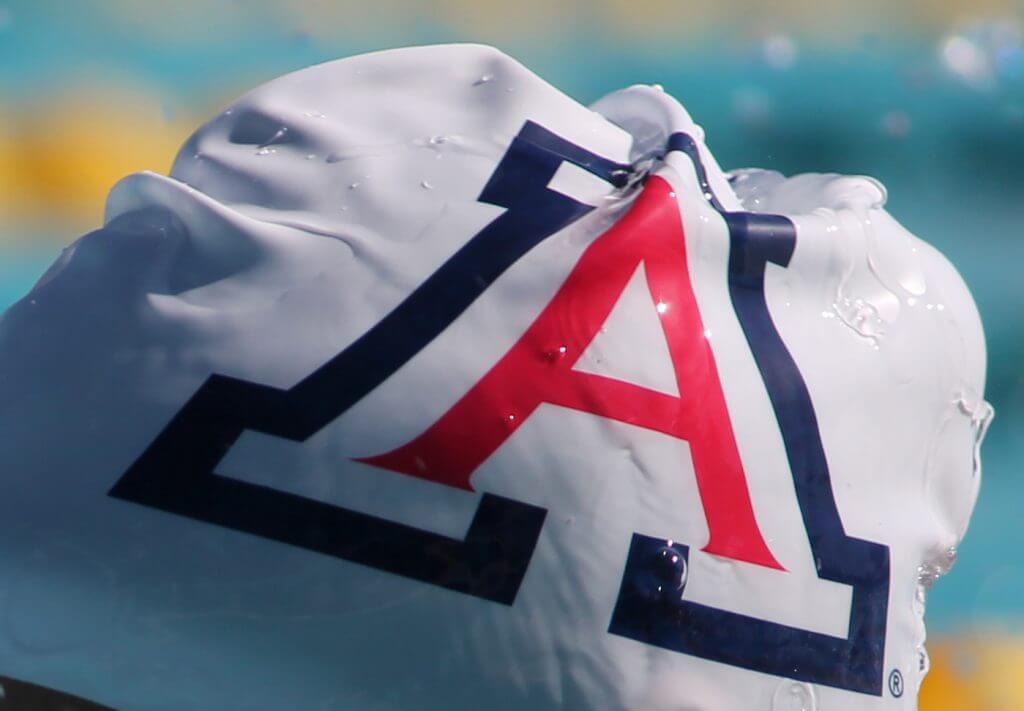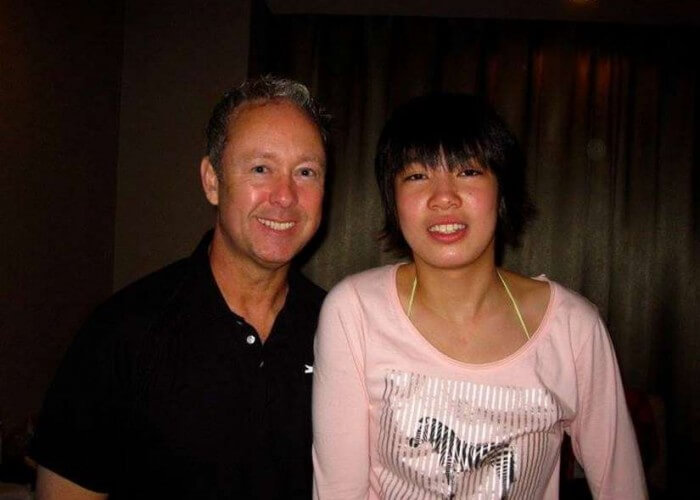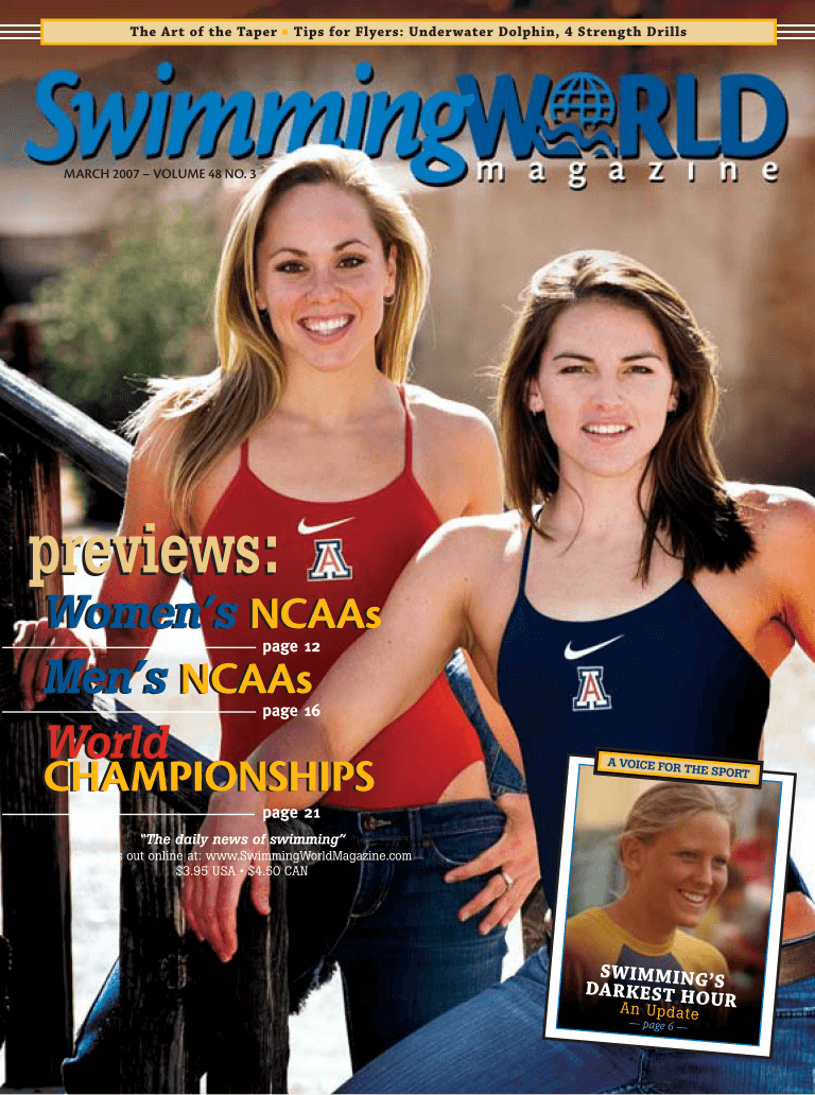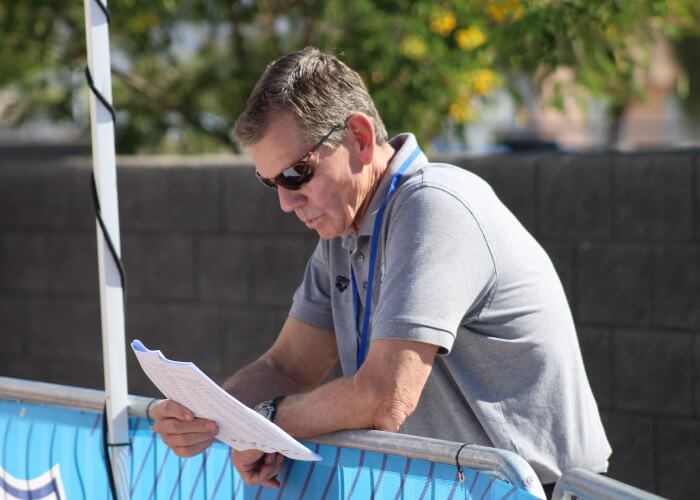NCAA: An Important Step in a Swimmer’s Career

By Emma Miller, Swimming World College Intern.
In professional sports like hockey and baseball, going to college is one of the biggest decisions young athletes are faced with. Choosing to go the NCAA route could mean having extra time to develop. Conversely, as is highlighted in this Bleacher Report article, some of the best athletes in the world never got a college education. Sidney Crosby and Derek Jeter are monumental figures in their respective sports, and they do so without having attended university.
Swimming is a whole ‘nother ball game, pun intended. Very few swimmers are able to make the transition from high school directly to professional competition due to the intense, year-round nature of the training.
Olympic silver medalist Lacey Nymeyer-John spoke about her unique experience of NCAA swimming at the University of Arizona.
“At the University of Arizona, I had a fantastic NCAA experience,” she explained. “What I loved about it, and what I struggled with at the beginning, was transitioning from an individual sport such as club swimming then moving into a very team-dominated environment. It kind of takes on a whole new sport, really.”
As a member of Arizona’s squad, Nymeyer-John flourished at both collegiate and professional competitions. At the 2007 World Aquatic Championships, she swam alongside Natalie Coughlin, Dana Vollmer and Katie Hoff in a record-breaking 4×200-meter relay. But the most poignant moment for her was winning the silver medal in the 4×100-meter freestyle relay at the 2008 Olympics in Beijing.
“I think for me, it was a great honor,” Nymeyer-John said. “I think in the media, and I think in so many other platforms, we build people up to be these superheroes and they’re untouchable in so many ways, but they’re just people. These are good people, and they’re good women.”
Coughlin, Dara Torres and Kara Lynn Joyce were the other swimmers on the podium the summer during which the U.S. fell to the Netherlands on the international stage.
“Even without their swimming accolades, they’re so inspiring,” Nymeyer-John said. “I appreciated the opportunities to see them in different lights and to be able to have real-life conversations with them and see their reality. I think their perspective life definitely translated to their success in the pool.
“When you look at a relay, you see four individuals. We each take our turn in the pool and we touch the wall and the other person dives in,” she continued. “When you are in that relay and you’re standing behind the blocks, you’re watching your teammates swim, you see them battling it out, you see them struggle – it kind of bonds you together because it’s like, okay, you just did your time and now it’s my turn to do my time.”
Ron Turner, head coach at the Nanjing Sports Institute in Nanjing, China, added, “Swimming is an interesting sport because it really is one of the few sports where you’re competing as an individual, but the result is what you’re doing as a team, and especially so in college.”
Turner has extensive coaching experience, particularly at the college level. The University of Tennessee alum joined his alma mater as an assistant coach for several years before stints at Clemson University and Indiana University. In his 20 or so years as a coach, Turner has seen many swimmers succeed at the international level; Charlie Houchin swam under Turner when he made the U.S. national team in 2006. He won a gold medal six years later at the 2012 Olympics in London.

Coach Ron Turner with Chinese national team swimmer Shen Duo in 2014. Photo Courtesy: Ron Turner
“In my case, I’ve had athletes where my coaching colleagues would have never thought could have done anything, and then they turn around and make Olympic Trials or they succeed at a very high level,” Turner said. “I think my foundation of coaching is finding out what motivates each individual and then tie that into how it helps the team reach their goals.”
Fellow Arizona Wildcat and former NCAA Woman of the Year Whitney Myers Burnett explained that her college experience was invaluable to her development as an athlete.
“I never swam faster than I did than when I was swimming for Arizona, and I think that what pushed me to do that was knowing that the team was counting on me,” Myers said. “I wanted to do well for the team, and when I was a professional, it wasn’t the same. I didn’t have that little extra push of, you know, I’ve got 25 people that need me to do well.”
Being from a small town in Ohio, Myers said that tough competition was hard to come by.
“Being from Ohio, I was from a small town and I was the superstar on the club team. I trained by myself,” she explained. “Sometimes, my coach would even train with me because there was no one else there, so I was really hungry for the team environment and I felt like I really thrived [in college].”
Nymeyer-John echoed the unique and motivating sentiment of competing as a member of a team.
“That elevated my career to levels that I never, never anticipated and far surpassed my talent level. It was really the game changer, being able to swim for something and someone besides myself,” Nymeyer-John said.

Lacey Nymeyer-John and Whitney Myers Burnett on the cover of Swimming World Magazine in 2007. Photo Courtesy: Swimming World Magazine
Turner said that team mentality is one of the most important lessons that college athletes learn during their NCAA tenures but also added that swimmers are faced with other valuable life lessons.
“You learn how to deal with other things, like a bigger load of balance in terms of social life, classes, and then swimming 20 to 25 hours a week,” Turner said. “You learn that balance a little bit more, and for women especially, you learn a little bit more about failure. What I mean by that is a lot of women peak around 15, 16, so college is a time for female swimmers that they don’t actually get a lot better, so they have to struggle with that a bit and learn to overcome obstacles. I think it makes you a little more grounded in terms of what you’re capable of doing.”
Myers had first-hand experience with failure. She beat out Katie Hoff for gold at the Pan Pacific Championships in 2006 and won several NCAA titles during her time in Arizona, but her celebrations didn’t last long.
She told the New York Times in March of 2008 that after seeing stagnant results despite her hard training, “I remember standing behind the starting blocks at the pool and thinking, ‘I don’t want to be here.’ I felt terrible, mentally and physically.”
“I never let my athletes get satisfied with what they do,” Turner said. “They can give themselves a pat on the back and be proud, but we immediately raise the bar and move them forward. That keeps them from getting stale, and it lets them have that periodic enjoyment and satisfaction. But for me, I’m a big fan of raising the bar and keep moving it forward.”
Turner added that swimming is a highly mental sport, and that his success as a national team coach for both the U.S. and China can be owed to training mentally as much as physically.
“My athletes spend a lot of time talking about the mental aspect,” he said. “Not everybody is naturally talented. I think it’s not what you do, it’s what you believe you can do.”
Myers agreed that she found more success in the pool when she was in a mentally better place. Her gold medal experience at Pan Pacs is an example of that.
“When I look at my college career, hindsight is 20/20, but I realize that I performed much better when I thought of myself as the underdog,” she said. “When you look at what was going on in international swimming at that time – Katie Hoff was the big stud, Natalie, those were the staple names of USA Swimming from 2000 to 2010 – I always felt like I’ll probably get second but that’s okay, I’ll just push and try to get a best time. That was really a magical meet for me, being able to win and I dropped like, two seconds. It was really an out of body experience.”
Though she graduated in 2008, Myers still uses the lessons she learned as a swimmer in everyday life. Now a physician’s assistant in Pasadena, Cal., she explained that she has not lost her love of the sport.
“I get up every morning at 5:30 and swim with the Masters,” she said.
Something that has outlived Myers’ NCAA career is her relationship with longtime U of A head coach and former USA national team head coach Frank Busch.
“I think of Frank as a second father,” Myers said. “He was someone that I really strive to make proud and I didn’t want to disappoint him in the pool, in the classroom, in my life choices on the weekends.”
Myers is married to her teammate from Arizona, the British record-holding swimmer Simon Burnett. She described the special relationship she has with her former coach.
“Simon and I, we had 50 people at our wedding and two of them were Frank Busch and Patty Busch,” she said. “I think that that says a lot to how important Frank and his wife and his whole family have become to so many of his athletes.”

Frank Busch in 2016. Photo Courtesy: Taylor Brien
All commentaries are the opinion of the author and do not necessarily reflect the views of Swimming World Magazine nor its staff.



